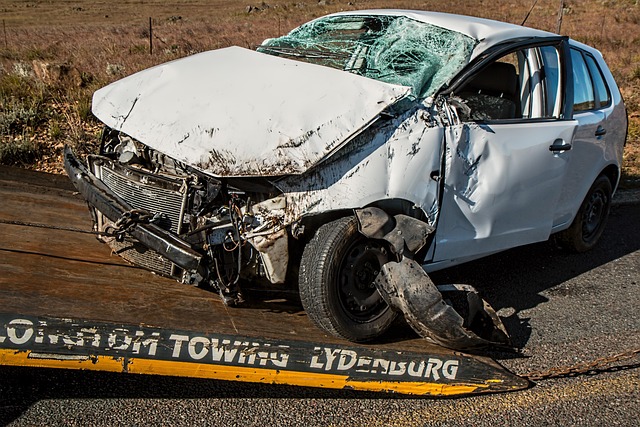When renting a car for short-term use, standard auto insurance typically doesn't cover these situations. Temporary Car Insurance Coverage Options offer liability protection and collision damage waiver, but policies vary. Review policy details carefully, considering add-ons like personal effects protection. Choose a reputable provider with transparent terms to ensure adequate protection during your rental period. Understand the claims process for smooth incident handling. Strategically select comprehensive and collision coverage where available.
Looking to rent a car for a short-term trip? Don’t overlook insurance – it’s crucial for protecting you from unexpected costs. This guide explores temporary car insurance, breaking down complex options into understandable terms. We’ll cover everything from different policy types and coverage scenarios to who needs it and how to choose the best provider. Discover the advantages of insuring your rental vehicle and learn about common exclusions. Equip yourself with knowledge and maximize your peace of mind on the road by understanding your temporary car insurance coverage options.
Understanding Short-Term Vehicle Rental Insurance Needs

When renting a vehicle for a short-term basis, whether it’s for a holiday or a temporary relocation, understanding your insurance needs is crucial. Unlike long-term leases, temporary car rentals often come with different liability and coverage requirements. It’s essential to explore various Temporary Car Insurance Coverage Options to ensure you’re adequately protected during your rental period.
Many standard auto insurance policies do not cover short-term rentals, as they are considered high-risk due to the lack of long-term commitment. Therefore, renting companies typically offer their own insurance plans, but these may have limitations and exclusions. It’s important for renters to read the policy details carefully and consider enhancing their coverage with additional options like collision damage waiver or personal liability protection to safeguard against unexpected incidents during their rental period.
Types of Temporary Car Insurance Policies

When considering insurance for short-term vehicle rentals, understanding the various temporary car insurance coverage options is essential. These policies are designed to cater to individuals who need a quick solution for insuring a rental car without committing to long-term policies. Typically, these options include liability coverage, which protects against damages or injuries caused to others during an accident, and collision damage waiver, which covers repairs or replacement costs in case of accidental damage to the rented vehicle. Some policies also offer comprehensive coverage, adding protection against theft, vandalism, or natural disasters.
Temporary car insurance coverage options can vary among providers, so it’s crucial to compare different plans. Look for details on deductibles, limits, and any exclusions. Some companies may also offer add-ons like personal effects protection, which covers belongings stored in the vehicle, or roadside assistance services. Understanding these components will help ensure you’re adequately protected during your short-term rental period.
Coverage Options for Different Scenarios

When considering insurance for short-term vehicle rentals, understanding the coverage options is crucial. Different scenarios require specific types of protection. For instance, if renting a car for a weekend getaway, a basic temporary car insurance policy might suffice, covering liability and any damage to the rental itself. This option typically excludes personal belongings, so ensure you have separate insurance for your valuables.
In contrast, a longer-term rental or those engaging in high-risk activities like off-road driving may need more comprehensive coverage. Some policies offer protection for personal injuries, medical expenses, and even loss or damage to the rental vehicle beyond standard wear and tear. It’s important to review the policy details, considering both the rental duration and intended use to select the most suitable Temporary Car Insurance Coverage Options.
Who Needs Short-Term Auto Insurance?

Everyone from travelers visiting a new city to event organizers needing transportation for a few days can benefit from short-term auto insurance. This type of coverage is designed to fill the gap left by traditional car insurance policies, which often have restrictions on rental cars or temporary usage.
When renting a vehicle for a short period, it’s crucial to understand your liability and protection. Temporary car insurance coverage options provide basic liability protection, ensuring you’re financially covered in case of an accident. These plans can also include collision damage waiver (CDW), which protects you from paying for any damages to the rental car, offering peace of mind while navigating unfamiliar roads or attending special events.
Advantages of Insuring Your Rental Vehicle

Insuring your short-term rental vehicle offers significant advantages, especially considering the potential risks and financial burdens associated with accidents or damages. Temporary car insurance coverage options provide peace of mind, ensuring that unexpected events won’t leave you with substantial out-of-pocket expenses. It protects not only the vehicle but also its occupants, offering liability protection in case of injuries or property damage caused to others during the rental period.
Additionally, insured rental vehicles often come with comprehensive and collision coverage, safeguarding against various risks like theft, vandalism, natural disasters, and even accidental damage. This is particularly beneficial for short-term rentals as it can help you avoid hefty deductibles that could significantly impact your budget. By opting for insurance, renters can enjoy their journey without worrying about the financial repercussions of unforeseen circumstances.
Common Exclusions and Limitations

When considering insurance for short-term vehicle rentals, it’s crucial to be aware of common exclusions and limitations. Many standard auto insurance policies do not cover temporary car rental situations, leaving renters vulnerable to significant financial burdens in case of accidents or damage. Temporary Car Insurance Coverage Options are designed to bridge this gap, but they too have their exceptions. For instance, these policies usually exclude high-risk activities like off-road driving, racing, or transporting hazardous materials. Additionally, limitations on mileage and age restrictions for drivers may apply, ensuring the policy remains affordable while mitigating risks.
Rental companies often offer their own insurance packages as add-ons, but these too have stipulations. They might cover basic liability and collision damage but may not include comprehensive coverage for theft or vandalism. Understanding these exclusions is essential to making informed decisions. By knowing what’s covered and what isn’t, renters can choose the right Temporary Car Insurance Coverage Options that align with their needs, ensuring they’re protected during their short-term rental periods.
How to Choose the Right Provider

When selecting an insurance provider for short-term vehicle rentals, it’s crucial to consider several factors to ensure adequate protection. Start by evaluating the types of coverage offered, including liability, collision, and comprehensive options. Temporary car insurance coverage choices vary among providers, so compare policies to find one that aligns with your rental needs and budget. Look for companies that specialize in short-term rentals, as they often have more flexible plans tailored to this specific segment.
Additionally, assess the reputation of the insurance company by checking customer reviews and ratings. Ensure they provide 24/7 support and have a straightforward claims process. Verify if the policy includes any hidden fees or exclusions, especially regarding rental durations. Opting for a reputable provider with transparent terms will give you peace of mind while enjoying your short-term rental experience.
Claims Process and What to Expect

When renting a car for a short-term trip, understanding the claims process is crucial for a seamless experience. Most rental companies offer temporary car insurance coverage options, but it’s important to be aware that policies can vary widely. Typically, you’ll need to report any incident or damage promptly to the rental agency, as per their specified procedures. This may involve filling out a claim form and providing detailed information about the incident, including photos of the damages.
What to expect during this process is relatively straightforward but can be stressful if you’re unfamiliar with it. The rental company will assess the damage and determine the cost of repair or replacement. They’ll then contact their insurance provider to initiate a claim. As a renter, you should receive regular updates on the status of your claim and any out-of-pocket expenses you may be responsible for, such as deductibles.
Tips for Maximizing Your Temporary Coverage

When considering temporary car insurance for short-term rentals, there are several strategies to maximize your coverage and ensure peace of mind. First, review the policy details carefully to understand what’s covered and any exclusions. Many policies exclude specific high-risk activities or locations, so check if off-road driving, racing tracks, or international travel is included.
Second, opt for a comprehensive and collision coverage if available. This protects you from unexpected damages beyond liability, which typically covers only the other party’s vehicle. Additionally, consider adding personal effects coverage to safeguard any valuable items you bring with you in the rental vehicle. By taking these steps, you can ensure that your temporary car insurance options align with your specific needs, providing adequate protection during your short-term rental period.
